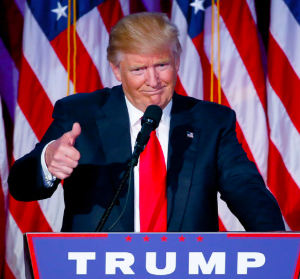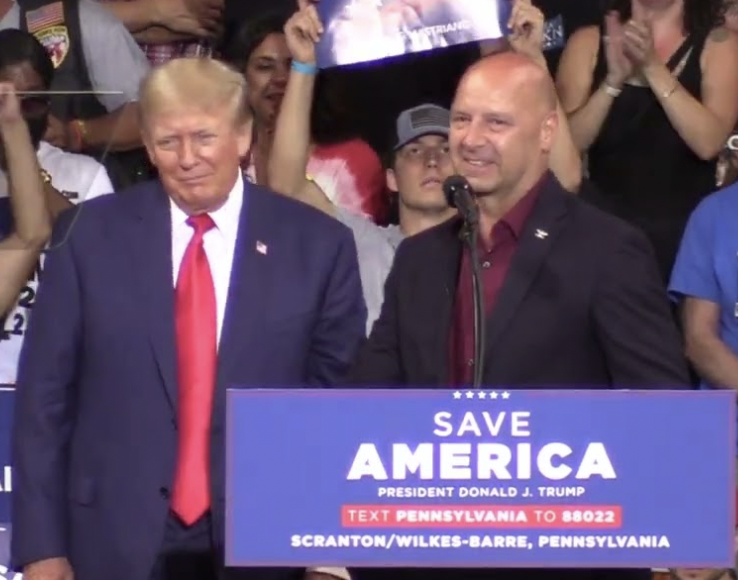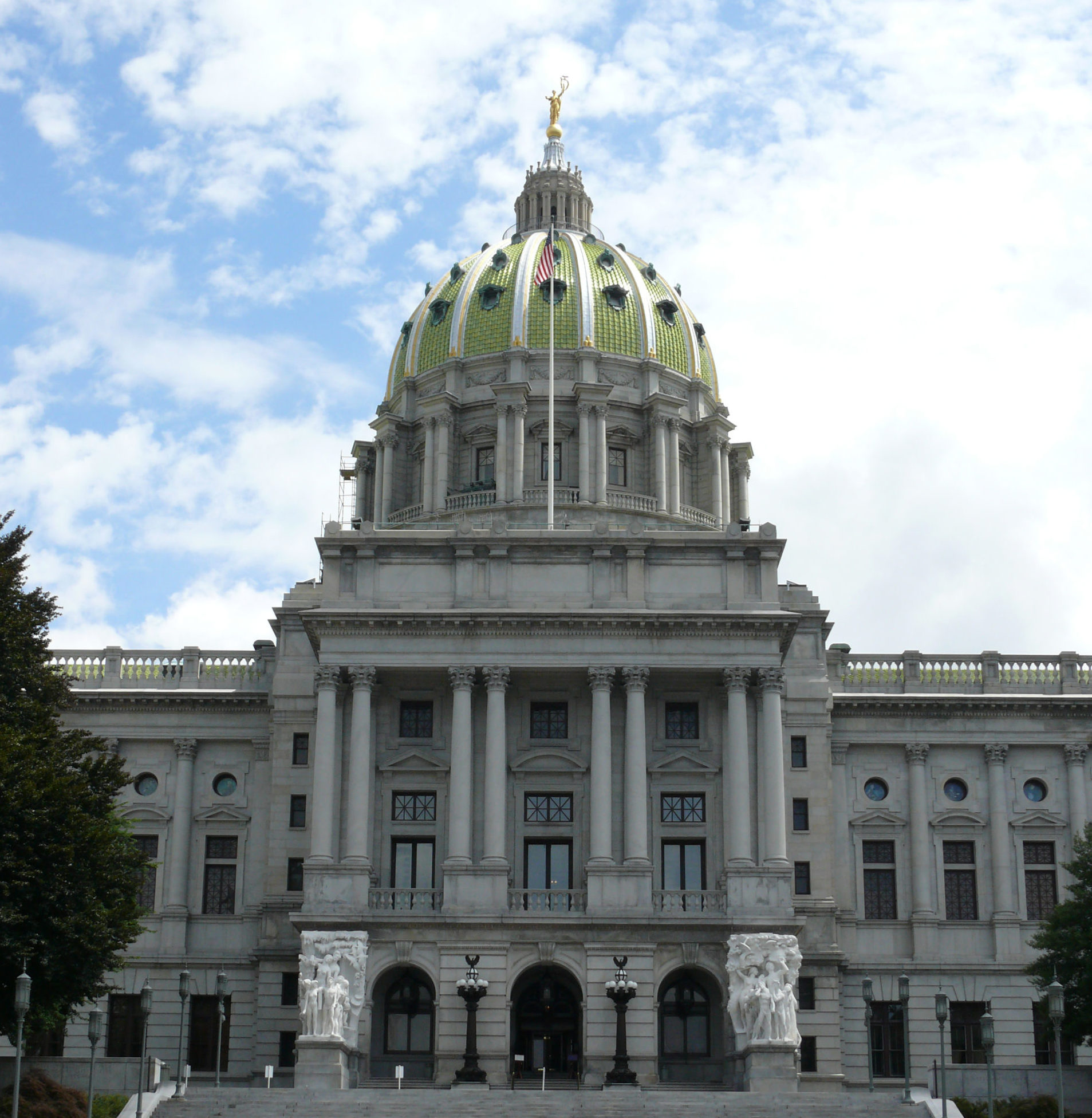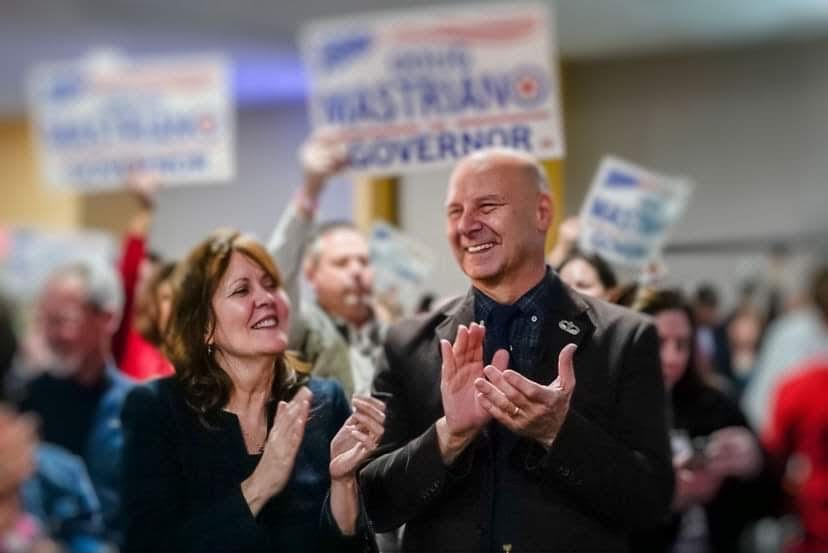Point: Republicans Falling Into the Same 2016 Trump Trap

For an alternative viewpoint, see: “Counterpoint: Not a 2016 Rerun–Trump Is a One-Trick Pony.”
A large field of qualified candidates is setting up the Republican primaries for a repeat of 2016.
No one expected political neophyte Donald Trump to suck up all of the oxygen in the 2016 Republican primaries when the party had one of the most qualified slates of candidates in recent memory. Sitting U.S. senators, popular current and former governors from important swing states, and a former CEO of a major company all shared the debate stage with Trump, and most expected their experience to rise above his media presence.
But experience as a legislator or executive didn’t matter. A long history of promoting Republican principles didn’t matter. Even ethical norms that have previously been well-established were out the window.
Trump masterfully harnessed the 24-hour news cycle and his Twitter prowess to control the narrative. While other candidates presented policy ideas, like Sen. Marco Rubio’s gas tax reduction or Gov. John Kasich’s prescient focus on banking regulations, their messages were drowned out.
Why did policy positions matter so little in 2016? The primaries became a nationwide reckoning, a moment when frustrated Americans sought a fighter who would demolish the broken system instead of merely applying Band-Aids. People craved radical change as the American dream crumbled, and the policy-focused candidates could only offer incremental solutions.
So here we are, on the cusp of another raucous primary season. What’s different this time? Some argue that Trump’s loss in 2020 and questions about his electability have opened the field. Others point to rising stars like Gov. Ron DeSantis and Sen. Tim Scott as genuine potential contenders. Then there are the potential legal entanglements that might throw a wrench into Trump’s plans. And he’s no longer on Twitter, making it harder for him to dominate the news cycle.
However, let’s not forget that nobody believed Trump could win in 2016, and we all know how that turned out. Back then, stellar candidates with exceptional qualities ultimately fell short. Even more recently, Trump experienced a boost in polling after his indictment.
None of these factors fundamentally alter the dynamics of the furious voters who propelled Trump to victory before. And people are still unhappy. Fewer than 25 percent believe the country is on the right track, according to the RealClearPolitics polling average.
So where does this leave the other candidates?
If candidates try to out-Trump Trump, they fail. See Rubio’s “small hands” incident. Attacking him head-on has never proven to be an effective strategy. It has the added risk of turning off likely Trump voters — of which there are many.
Sadly, focusing on policy prescriptions is an exercise in futility. While there are indeed individuals who care about these issues, the ideas often go unheard amid the noise of the political landscape.
The 2016 primaries were by controversial statements, viral moments and media dramas overshadowing policy discussions. In the era of social media and 24/7 news coverage, the 2024 primaries will probably experience similar dynamics, favoring candidates who thrive in a chaotic and attention-seeking environment, which obviously tilts the race in favor of Trump.
This puts the other candidates in an impossible, unwinnable position.
The only way to avoid repeating 2016 is a numbers game. If there are still five or six candidates in the Iowa Caucus, the “never-Trump” voters will be spread out among the other candidates, making it impossible for someone else to come out on top. With a couple of quick victories in the early states, the sense of inevitability will swell, propelling the front-runner Trump toward the nomination.
Even if it were a one-on-one race, polling suggests that most Republican voters may still support Trump.
While the future remains uncertain, the similarities between the coming Republican primaries in 2024 and the 2016 election are too striking to ignore. A fragmented field, the enduring influence of Trump, and the party base’s motivations are all poised to shape the contest. However, as with anything related to Trump, uncertainty reigns. Anything could happen. But if I had to put my money on an outcome, it’s on history repeating itself.







